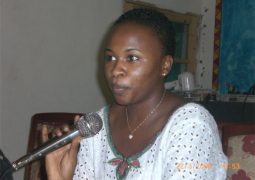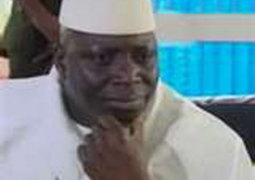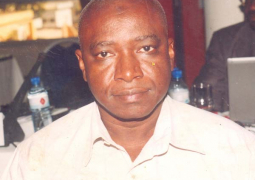As Muslims around the world observe the holy month of Ramadan, Health Matters brings you an interview with Mr. Amat Bah, Deputy Executive Director of the National Nutrition Agency (NaNA) on the eating habits of people during this holy month.
Below we reproduce the full text of the interview with him:
Mr. Bah, we are in the holy month of Ramadan, as a nutritionist, what advice will you give to the people?
Thank you Pa Modou. May I seize this opportunity on behalf of NaNA and its entire staff to wish all your readers a happy and blessed Ramadan. May the Almighty answer to all our prayers.
I am of the view that people can fast, get the blessing of the Almighty and also eat well to be healthy. Therefore, it is important that one tries to eat from the five food groups that will enable one get all or most of the nutrients needed by the body. The food we eat should contain carbohydrates such as our rice, coos, maize and ‘findi’. It should also contain some protein in the form of meat, fish, eggs, beans. The diet should also contain a little amount of oil and fats to give more energy. Vegetables and also fruits are very important because they serve as very good sources of vitamins and minerals which are very important in the functioning and protection of the body.
Pa, it is very important to remind Gambians that we have noticed that the use of oils and fats is increasing to an extent that we believe it is contributing to some of the diet related non-communicable diseases such as high blood pressure, diabetes and obesity that we are seeing a rise of in this country. During Ramadan, some compounds will cook nothing but oily foods throughout the month and as all the energy that the oil and the fat provides, is not needed by the body and will therefore convert some of it to body fat and store it around the body. This excess fat in the body is not healthy for it, more so considering that during Ramadan people can be less active and therefore do not utilize this excess energy.
Between the breaking of fast and 'Nafilah' and going to bed is so short that one should not eat more than is necessary for the body.
What is your view of eating early in the morning locally called 'hayda'?
This early morning eating Pa, is very important and I think that is why Islam puts a lot of emphasis on having it. May I add that when you take your early morning 'hayda', please do take enough water for the body. This is very important because one is expected to go through the whole day without taking water when the body needs water to function properly and be healthy. Let me come back to the early morning eating. The body goes through its own fasting period during the night and therefore breakfast in general is the most important meal of the day, as you are replacing all that was used by the body during the night. It then becomes more important during Ramadan to have this early morning ‘hayda’ not only to replace what was used but also to help the body remain healthy during the day and I believe one of the essence of Ramadan is to be healthy.
When it is time to break the fast, what would you advice?
Considering that, the intestines have gone for several hours with very little or no activity, we will stick to the teaching of Islam that you start with something light and preferably warm to enable the intestines prepare for more food that is to come. It should be mentioned that people should avoid eating and immediately going to bed, as it is very common during Ramadaan that people complain of heart burn and this is probably due to the fact that what should remain in the stomach is coming out of the stomach to an area where it should not be and because what is coming from the stomach is acidic, it gives a sharp burning sensation. It will therefore be advisable to take food and then do some activity depending on what you can do.
Is it advisable for certain category of people, say pregnant women to fast?
I am made to understand from religious teachings that, those who cannot fast during the month of Ramadan can do so afterwards and among these are the pregnant women, lactating or breastfeeding mothers and the sick. We would advice that pregnant women and breastfeeding mothers should therefore not force themselves to fast since what they eat throughout the day is what the unborn and the breastfeeding child need for their survival. If for the lack of food, any damage is done, this damage may not be reversible in life. Since these children are our future leaders tomorrow, we should prepare them well to be well nourished and healthy adults tomorrow. Having said this, we should also take good care of the children during Ramadan and not only be giving them left-over food that can lead to food poisoning.
If one has problems like diabetes, we would strongly advise that you talk to your doctor or the health workers who are managing your condition about fasting. Fasting without really knowing if you should or not, could be very damaging to your health.If you do not eat the whole day, your blood sugar can be so low that it will bring you problems. If at the breaking of your fast you fill yourself with too much of the sugars that the body cannot cope with, you will end up having problems.
What would be your last word?
Well, Pa, as the saying goes "too much of anything is good for nothing." Let us be moderate in what we eat in this holy month. Do not forget to take the early morning 'hayda', with plenty of water, reduce the oil and fatty food and support the pregnant and breastfeeding mothers always. May the Almighty accept all our prayers.
Read Other Articles In Article (Archive)




